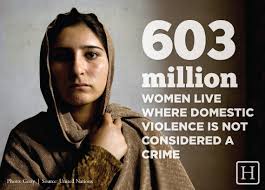How to Conduct Yourself in Court in Front of Your Domestic Violence Accuser
 Facing charges of domestic violence in California is a profoundly serious matter that can impact every facet of your life—from your personal relationships to your standing in the community and future employment opportunities. The legal process that follows such accusations is fraught with emotional and legal complexities, not the least of which is facing your accuser inside a courtroom.
Facing charges of domestic violence in California is a profoundly serious matter that can impact every facet of your life—from your personal relationships to your standing in the community and future employment opportunities. The legal process that follows such accusations is fraught with emotional and legal complexities, not the least of which is facing your accuser inside a courtroom.
Since most domestic violence cases involve intimate partners, there’s a strong likelihood that your accuser is someone you love or once loved. The rules of engagement with this individual are vastly different inside the courtroom than they were in your home. Understanding how to navigate these challenges with dignity, respect, and a clear head is crucial to ensuring you receive the best resolution possible for your case.
Understanding the Legal Implications of Domestic Violence Accusations
 Los Angeles DUI Attorney Blog
Los Angeles DUI Attorney Blog




